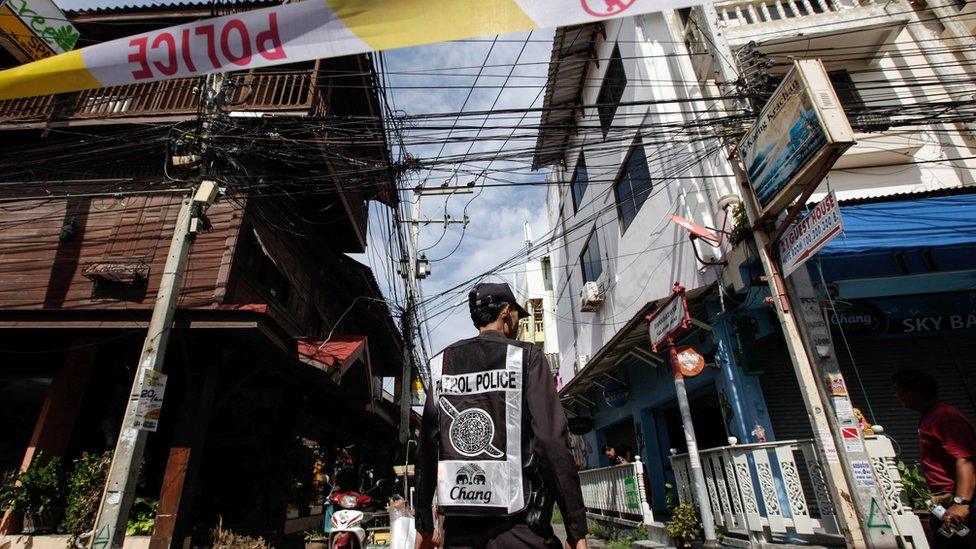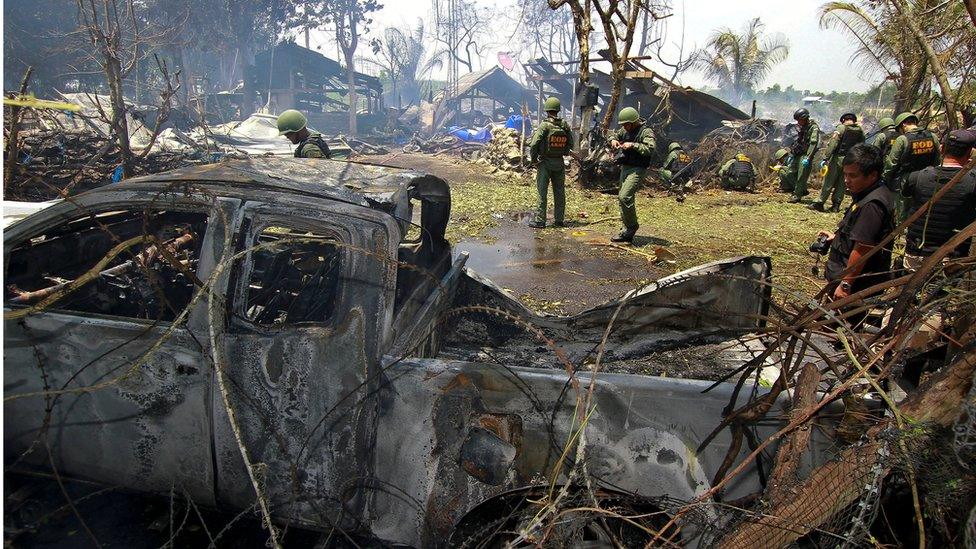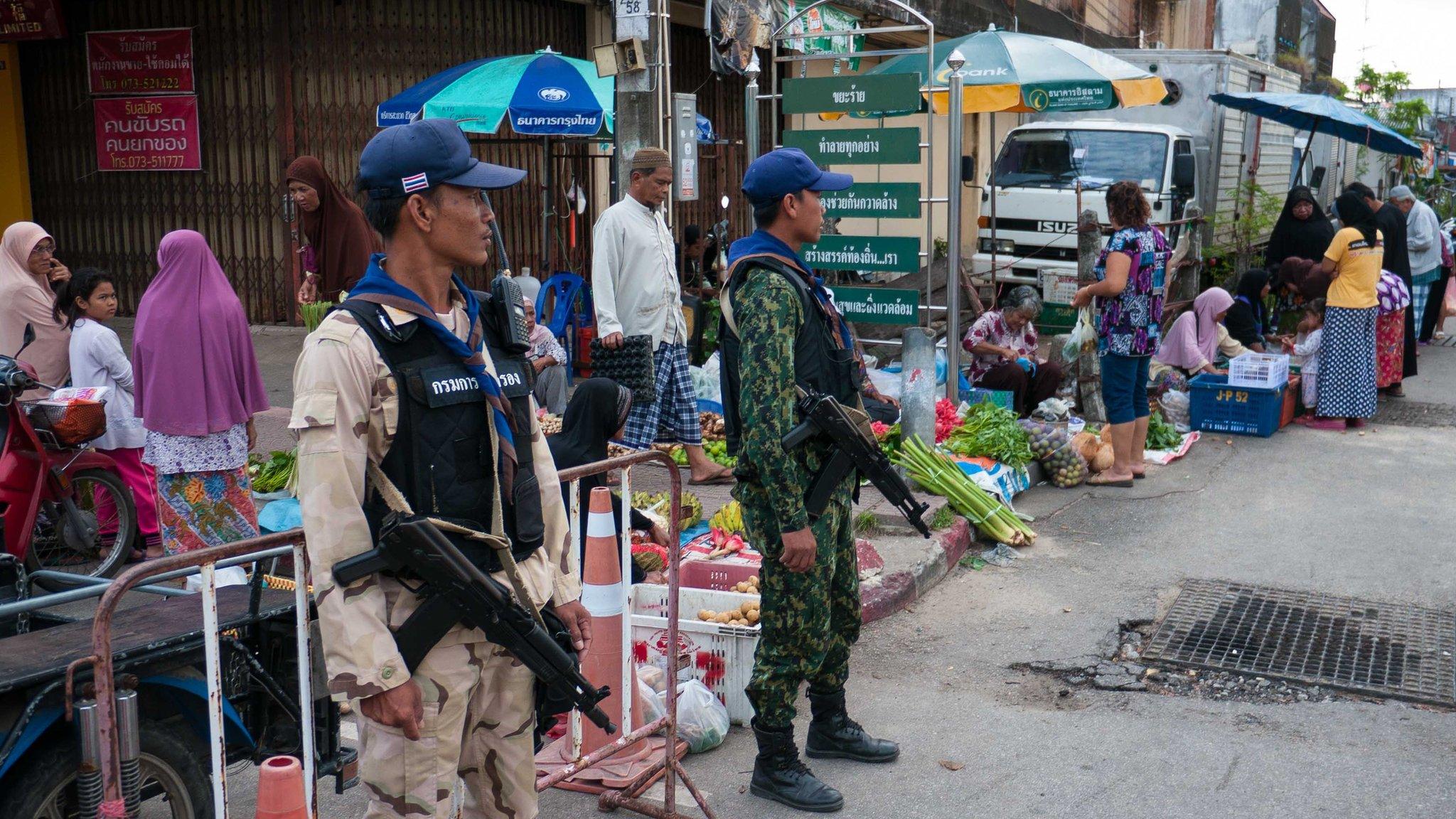Who is behind the Thailand bombings?
- Published

Tourist hotspots - including the royal resort of Hua Hin - were targeted in the latest attacks
Eleven small bombs, detonated at popular tourist spots, in locations spread across southern Thailand. Who would carry out such an attack, and why?
The Thai police have ruled out any links to international terrorism. They also dismissed the likelihood that it was the separatist insurgent groups which have been fighting the Thai armed forces in the three Malay-Muslim provinces on the Thai-Malaysian border for the past 12 years.
Government spokesmen have instead described these attacks as "domestic sabotage", and hinted that the most likely perpetrators are those who lost out in the referendum last Sunday.
That vote approved a new constitution which entrenches long-term military influence in Thai politics, and was opposed by the party of ousted Prime Minister Yingluck Shinawatra, and her so-called "red-shirt" supporters.
The clear hint from the military is that this is where they will direct their investigation.
But while there were small armed groups on the fringe of the red-shirt movement which carried out sporadic attacks in the turmoil leading up to the 2014 coup, they have done nothing since then, and the military has kept a close watch on them.
Such co-ordinated attacks in a region where the red shirts have almost no presence would appear to be beyond them. But they cannot be ruled out.

Insurgent attacks - such as this bombing in Pattani in July - have largely been restricted to Thailand's southernmost provinces
By contrast the style of the attacks - twin bombings, catching those who gather to look at the first blast - are very typical of the insurgents, loosely led by the separatist Barisan Revolusi Nasional (BRN) movement in the three southernmost provinces.
So are the arson attacks we are also now hearing about, last night. Even the Thai police chief, Gen Chakthip Chaijinda, has now acknowledged a possible link to the deep south.
If this turns out to be the case, it would mark a significant escalation of the BRN's operations.
The southern insurgency has continued for 12 years and killed more than 6,000 people, but has rarely spread outside the three Malay-Muslim provinces, and almost never targeted Thailand's many tourist hotspots.
Targeting a royal town, Hua Hin, the favoured retreat of the royal family, and on a day when many Thais are celebrating Queen Sirikit's 84th birthday, is also significant.
Whoever carried out these attacks, they surely intended to send a message, shaking public confidence in the military's ability to maintain peace and order.
- Published19 February 2013
